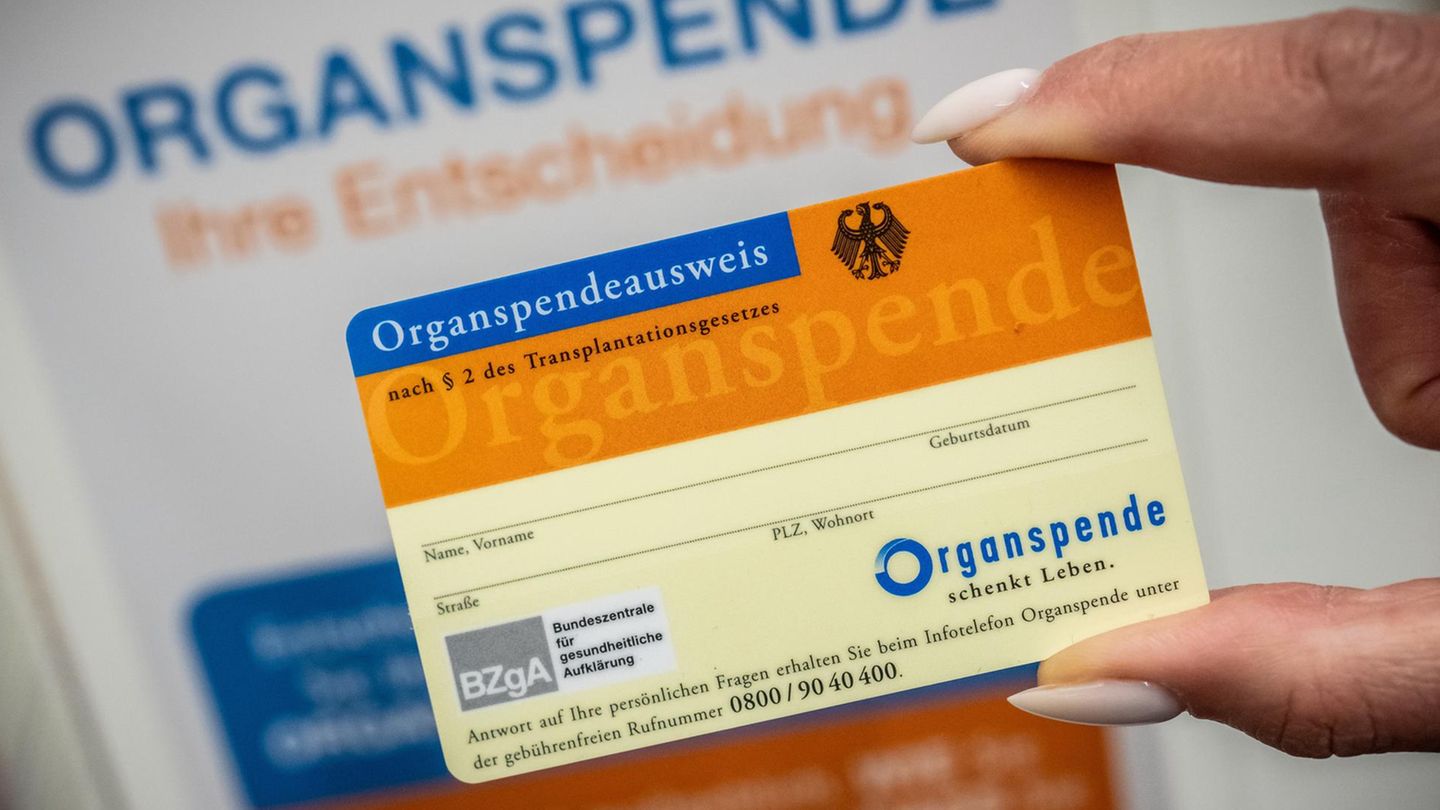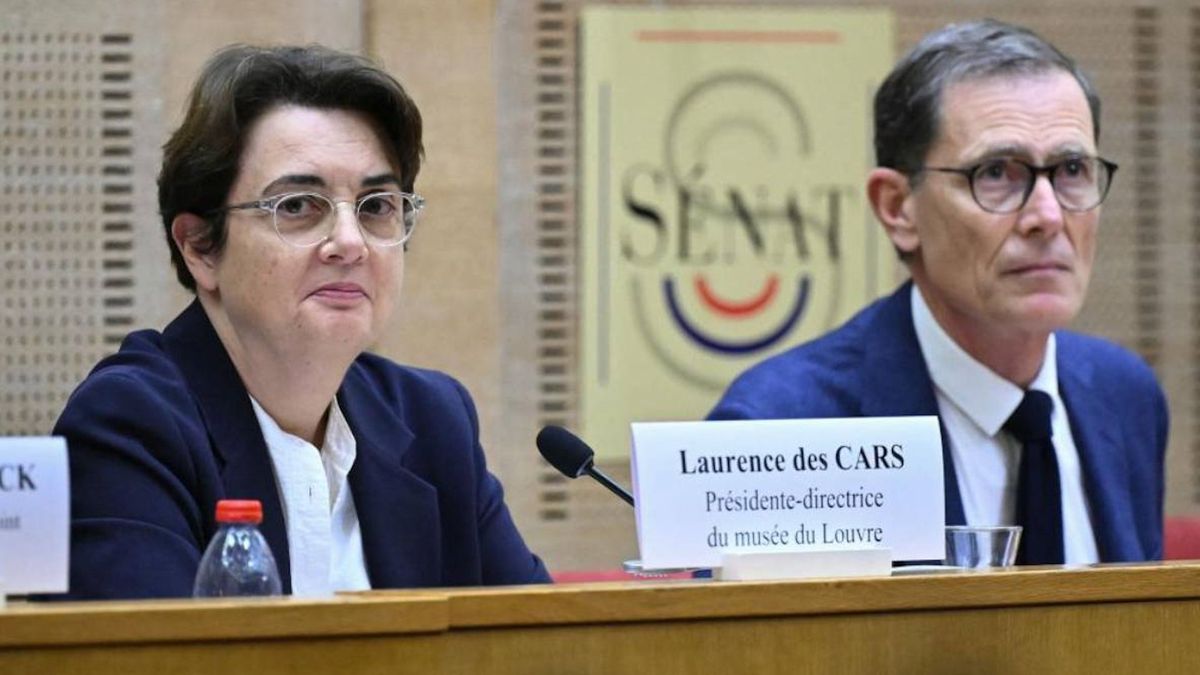Automatic organ donor? Four years ago, FDP politician Christoph Hoffmann voted against the opt-out solution. Now he wants to introduce it together with his fellow campaigners. What made him change his mind?
Should everyone be a potential organ donor unless they explicitly refuse to do so during their lifetime? This is what the so-called opt-out solution envisages. The Bundestag could soon be considering this. Not for the first time: this model was already up for debate in 2020. At that time, however, the majority of MPs voted against it.
One of them was Christoph Hoffmann, who has been a member of the Bundestag for the FDP since 2017. He, of all people, has now presented a new draft for the objection solution together with five colleagues from the CDU/CSU, SPD, Greens and Left. star He talks about the reasons for his about-face. And the hope of finally solving the donor problem. Because people in Germany are still dying every day waiting in vain for a donor organ.
Mister Hoffmando you actually have an organ donor card?
Sure, forever.
In 2020, the Bundestag decided on a digital Organ donation-Register in which donors can register voluntarily. You yourself voted for it and against the opt-out solution. Why did you change your mind?
The trigger was the recent initiative in the Federal Council.
Two weeks ago, eight states, including North Rhine-Westphalia, also presented a draft for the Objection solution presented.
We have not reached our self-imposed target of voluntary donors. The waiting lists for donor organs are getting longer, not shorter. Three people die every day on the waiting list. This is an intolerable situation. We can prevent it – if we resolve the discrepancy between the actually high willingness to donate and the low number of donors.
You yourself stated four years ago that an opt-out solution would be “too much state intervention in the freedom of the individual”. Why do you now think this intervention is justified?
As a liberal, I always rely on voluntary participation and common sense. But voluntary participation has unfortunately failed when it comes to organ donation. Personal freedom means: I can decide for or against it. But people have to think about it first. They are not doing that at the moment. The number of donors has not changed significantly in recent years, even though doctors’ offices are giving advice on a large scale!
Why is that?
There is a certain inertia among people. If you don’t have a loved one waiting for a donor organ, you are not confronted with the problem. Who sits down after work and googles where to find the organ donation register?
Critics see the opt-out solution as an infringement on personal rights. The chairman of the German Foundation for Patient Protection, Eugen Brysch, even calls it “bodily harm”.
I also receive letters from citizens who use this term. Organ donation is not an infringement on one’s personality. If you donate, you are dead. Many people have horrific ideas. For example, that the deceased will later be missing organs or eyes. On the other hand, some people are now being cremated, which is not a pleasant idea either.
Another point of criticism is that an opt-out solution is of no use without appropriate structures, such as an efficient transplant network.
That is correct, but the structures already exist. Organ donations are arranged through the Eurotransplant Foundation in the Netherlands, Belgium, Luxembourg, Germany, Austria, Croatia, Slovenia and Hungary. In most of these countries there is an opt-out rule, which is why it would be fair to the other countries if we did the same here.
Her group colleague Andrew Ullmann proposes instead that cardiac death should be recognized as a criterion for organ donation rather than brain death. This is common practice in other countries such as Spain.
That is a different debate. It will come to Germany too, but now is not the time for it.
Anything that is better than before is good.
Members of several parliamentary groups have signed their draft. Members of the AfD and the Sahra Wagenknecht alliance are missing. Why?
Working with colleagues is not always easy. It was too unpredictable what would happen if they were on board too.
The majority of the FDP parliamentary group was against the objection solution in 2020. Has the mood changed?
Even back then, some prominent FDP MPs voted for the opt-out solution, such as our parliamentary group leader Christian Dürr. But it is not a question of whether a majority of a parliamentary group votes for or against it. It is a question of personal conscience. My parliamentary group colleague Katrin Helling-Plahr, for example, has announced a counter-motion. This could concern the ID card solution.
In this case, every citizen would be asked about their willingness to donate, for example when renewing an identity card. Wouldn’t it be easier to find a majority in the Bundestag for this?
The municipalities are currently rejecting this because they would be overwhelmed by the advice. A residents’ registration office cannot provide information about organ donation. A family doctor must do that. The opt-out solution would not burden the municipalities.
Nevertheless, you are also open to such a model.
The first thing is to get the debate going again. The way would be clear for the federal states to opt out. We could therefore make rapid progress there. Anything that is better than before is good. Of course, it is possible that we will end up voting on the ID card solution.
Keyword speed: you want to pass the bill in 2024. The switch to the objection solution could then take place in 2026 or 2027. Aren’t you losing valuable time here?
There is no fixed timetable. The motto is: as quickly as possible. During the summer break, colleagues can think about it or draft their own proposals. After that, the orientation debate begins. I think it will go well this time. faster because the arguments have already been exchanged. We want to submit our draft to the Bundestag this year.
Why do you want a transition period between the adoption of the law and the entry into force of the opt-out solution?
We cannot take people by surprise. We cannot say: the opt-out solution will apply from tomorrow. The population must be informed about this. And they need enough time and space to be able to object. Two years is an appropriate period of time in this case.
How do you ensure that everyone gets the chance to object?
The media have a big task here. Our proposal also calls for a campaign by the Federal Center for Health Education. We also need brochures in residents’ registration offices. And doctors must continue to provide information.
Assuming that several proposals are actually voted on in the Bundestag: Does this not entail the risk that in the end no option will find a majority?
It cannot be that MPs do not make up their minds. As parliamentarians, we have a duty to do so. That was the problem when we wanted to re-regulate assisted suicide in 2023. Many abstained, there were irreconcilable differences between the two camps and no majority for a motion.
At that time, the Bundestag voted on two draft laws. Both aimed to make euthanasia easier. Neither of them found the necessary majority – even though the majority of MPs were dissatisfied with the current regulations.
That was not a good sign for Parliament. In the debate on organ donation, if there are further group proposals, we must try to unite them. But I am fairly certain that a majority will be found for the opt-out rule.
Source: Stern
I have been working in the news industry for over 6 years, first as a reporter and now as an editor. I have covered politics extensively, and my work has appeared in major newspapers and online news outlets around the world. In addition to my writing, I also contribute regularly to 24 Hours World.




